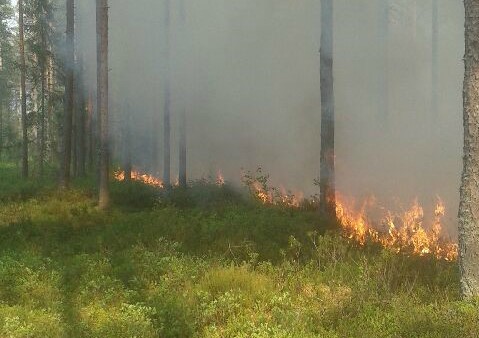A Forest-fire Period has been Announced in State Forests
This spring is characterised by dry and sunny weather, which also increases the risk of fire in forests. As of 19 April, the State Forest Service has set a forest-fire period in the whole territory of the country. JSC “Latvia's State Forests” (LVM) calls on nature friends and holidaymakers to act responsibly in the forest and to comply with the requirements of fire safety regulations.
“It is important to avoid any open flames in the forest or in its immediate vicinity. This year, 39 forest fires with a total forest area of 27 hectares affected by fire have already been recorded in the area managed by LVM. The main causes of fire are careless handling of fire and burning of last year’s grass,” says Edijs Leišavnieks, LVM Forest Protection and Fire-fighting Manager.
Fire in such dry weather and winds can quickly take over a large forest area, destroying not only the growing trees, but also the creatures living there. This spring, most forest fires have emerged in the forests of LVM Southern Latgale Region: 15 forest fires with a total fire affected area of 6 hectares.
A devastating fire disaster in the region was prevented on 12 April, when LVM employees were returning from a seminar, and near Daugavpils Bypass in Nīcgale Municipality noticed a forest fire and started to restrict it in a timely manner.
“The manager of the State Forest Service's Southern Latgale Forestry Fire-fighting Station was immediately informed about this situation and a forest fire tanker was sent to the scene. Meanwhile, LVM employees started fire restriction works. When the forest fire truck arrived in the forest, the colleagues took over the duties of the fire brigade. As a result, the fire was quickly eliminated. I would like to thank my colleagues Toms Vaitkevičs, Andris Palkevičs, Ilmārs Purviņš and Artis Liepiņš,” says Aldonis Utināns, LVM Southern Latgale Region Forestry Manager.
In forests and marshes it is prohibited to:



